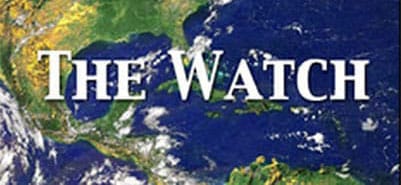Climate and Marine Ecosystems: What is Climate-Smart Ocean Management?
The United States is an ocean nation - our past and present are inextricably connected to the ocean and marine resources, and our future depends on them. Marine ecosystems provide us with vital services including jobs, food, transportation routes, recreational opportunities, health benefits, climate regulation and cultural heritage that affect people, communities and economies across the U.S. and internationally. We know there are strong linkages between our planet’s climate and ocean systems, and there is solid evidence that changes in the climate system are affecting marine ecosystems and the important services and benefits we depend on. This presentation explores what we know about climate-related impacts on marine ecosystems and the people that depend on them including what’s being impacted, what’s at risk, and what might be done to reduce risks and adapt to the changing ocean.

Roger Griffis (roger.b.griffis@noaa.gov) is a marine ecologist with over 20 years of experience at NOAA developing and implementing strategies for the sustainable use and conservation of ocean and coastal resources. Roger has been responsible for helping the agency identify, prepare for and respond to the impacts of a changing climate on marine fisheries, protected species, and in habitat protection and restoration. Roger has helped lead efforts to assess climate impacts on U.S. ocean ecosystems as part of the National Climate Assessment, and co-led development of the first U.S. Climate Adaptation Strategy to safeguard the nation’s valuable fish, wildlife and plant resources in a changing climate. Roger has also managed NOAA’s Coral Reef Conservation Program (2001-2007), and served as policy advisor in NOAA’s Office of Policy and Strategic Planning (1994-2001).
Education
Webinar Archives Education ResourcesStewardship
Supporting Stewardship Past Projects Focus Area Resources Applying for Funding
Search Education
Get Social
Last updated: 06/16/24
Author: NOAA
How to cite this article
